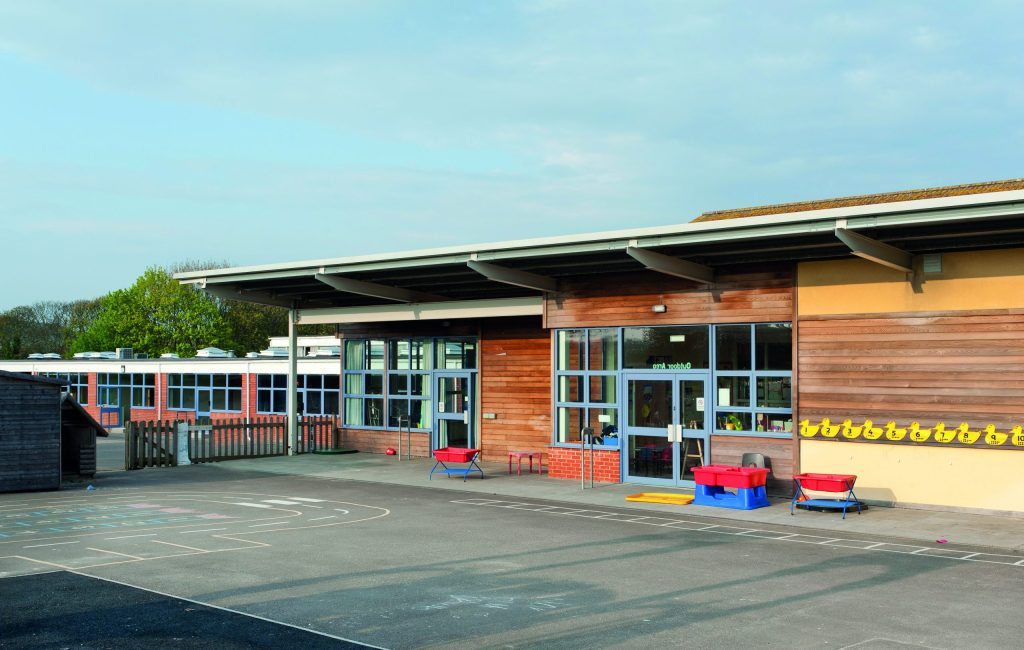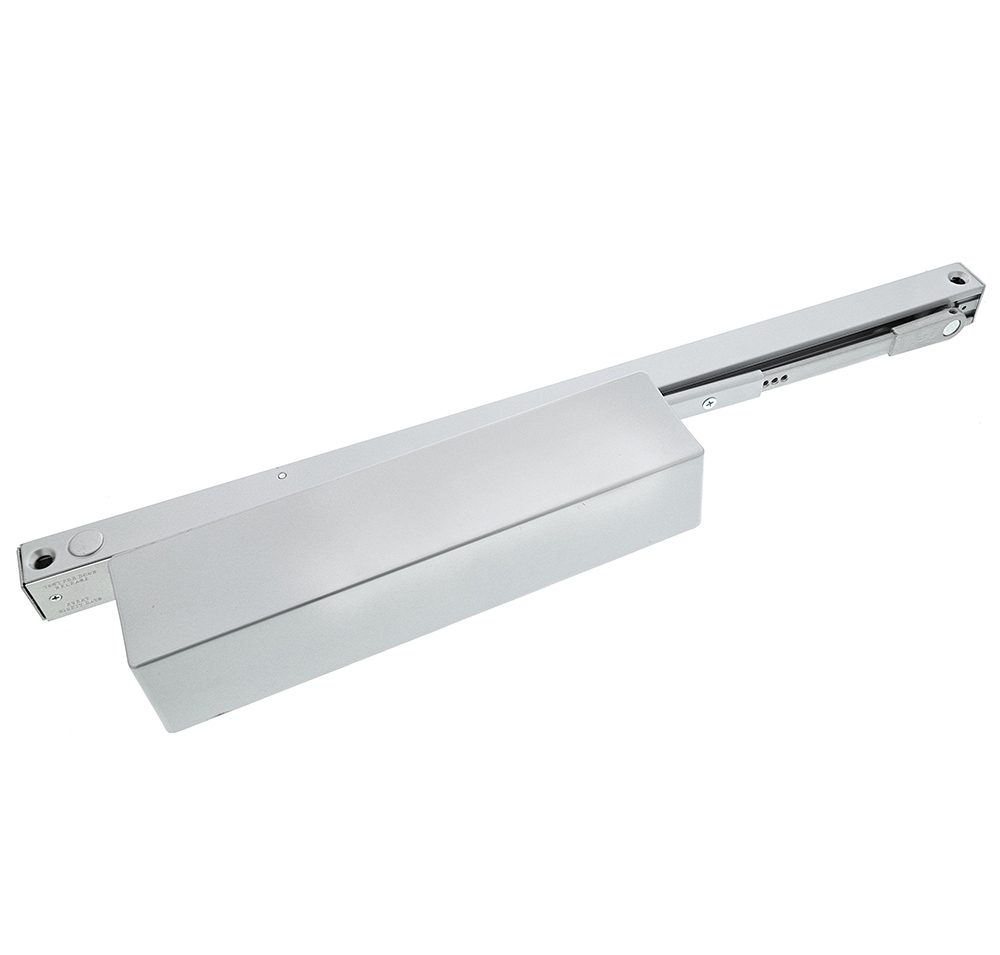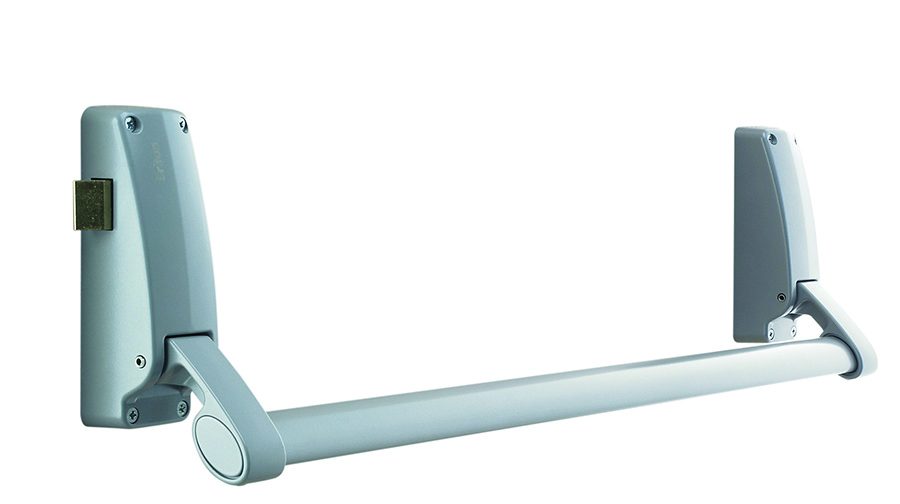Where school groups are faced with budgetary constraints, decision makers can’t afford to neglect fire safety. Sue Corrick of Allegion UK explains how responsible persons can use the summer break to extend the service life of fire doors in school buildings.

By the time August arrives, it’s official – school is out for summer. For students and staff alike, the summer holiday is a precious period of recreation and recuperation, but for most education facilities, the annual break presents an opportune time to complete much needed refurbishment and remedial work.
Fire safety is a core area for concern in particular, where according to the Fire Industry Association (FIA), one in 20 schools experience fire in their buildings. Fires can cause school buildings immeasurable damage, and in response – and as stated under the Regulatory Reform (Fire Safety) Order 2005 – designated responsible persons must conduct ongoing risk assessments to help identify potential hazards within their premises.
Yet, in 2022, research conducted by Allegion UK into the impact of fire doors in education facilities found that almost half of decision makers had encountered issues with fire doors in their buildings, with over half of respondents also revealing they were not aware of fire door maintenance procedures. As such, responsible persons are urged to make the most of their allotted time and budgets this summer, extending the service life of fire door hardware to help ensure students, staff and visitors are safe and secure when doors once again open for the new term.

School Life
School buildings are inherently diverse environments. While no two facilities may be the same, it is a legal requirement under British and European law for all academic settings to possess operational fire door sets. New regulation continues to draw focus on fire safety in school buildings too, with guidance from the Building Safety Act shining the light on higher-risk buildings of 18 metres in height (or at least 7 storeys tall), with certain education facilities meeting the criteria and thus required to register as high-risk by 1st October 2023.
Naturally, school classrooms and corridors are often bustling with movement and during term time, in high traffic areas, fire doors can be used anywhere between 100’s to 1000’s of times each day. Over time, daily use inevitably leads to wear and tear on fittings and in some cases, fire doors may even experience levels of misuse and abuse.
Take the end of each school day for example, where fire doors and their hardware are frequently put to the test as students (and staff) aim to leave the premises quickly. When doors are opened and closed with force, hardware elements can become tired, with poorer quality or incorrectly specified door hardware more prone to damage. To help prevent excessive wear and damage in busier areas, schools may benefit from electromagnetic hold-open devices, which combine wall magnets with existing door closers to aid ease of access and reduce any unnecessary roughness. Similarly, door closers with backcheck control will slow the motion of a door, preventing or minimising contact damage.
In the circumstance of a fire, it’s critical that a fire door closes independently and to completion. Damaged door hardware compromises the performance of a fire door, and as such, designated responsible persons, as part of their responsibilities, must ensure escape routes are clear and fire door sets are operating as intended, making note of and replacing any damaged door hardware in the process


Protection on a budget
While school buildings are closed, decision makers are gifted a period of low foot traffic and a sufficient amount of time to undertake compulsory maintenance periods without interruption. Whereas maintenance is key, research from the Guild of Architectural Ironmongers (GAI) has previously revealed education buildings to have the highest average maintenance spend attributed to door hardware. Furthermore, after reviewing school spending as a whole, the Institute for Fiscal Studies (IFS) estimated that school costs would increase by 6% across 2022/23.
To support schools, the government continues to invest in projects for new and refurbished buildings through its School Rebuilding Programme. Retrofit projects for example, when approached professionally, can make a considerable difference to a building’s operation – improving its efficiency and fire protection and all without needing to replace the existing fire safety infrastructure. Although, when completing retrofit projects, decision makers must consider high quality, like for like alternatives as using sub-standard components may have the adverse effect – further raising replacement costs later down the line and potentially breaching fire safety regulations in the process.
With many academic groups already fearing budget cuts may affect their ability to run facilities as planned, responsible persons are also urged to review their maintenance programmes. Primarily, decision makers can look to decrease their total maintenance spend by choosing more durable products at the product selection stage. The use of higher quality, correctly specified and installed door hardware products will help to lower the rate of sustained wear and damage and thus reduce the costs associated with repair and replacements. The Code for Construction Product Information (CCPI) is an accredited programme designed to present clear, accurate and up-to-date product information, and can assist decision makers in education by helping them to select trusted hardware that conforms to UKCA and CE certifications.
Above all, responsible persons must ensure fire doors and their hardware are routinely checked throughout the entirety of the school year, adjusting components where necessary to preserve the operation of fire doors. But while schools are closed, there’s truly no better time to get a head start on preparations and updated regulations – responsible persons must only seek professional advice where unsure.
How Allegion UK can Help
Allegion UK has a wealth of resources to help responsible persons undertake product selection, installation and maintenance checks on fire doors and hardware. For information on product selection and installation, please speak to our experts or head to our download centre for technical fitting instructions. For post-installation support, Allegion’s simple toolkit provides information and tips on detecting potential faulty doors and poor installation, a guide to the EN classification system and a safety checklist. There’s also an option to order a free door gap tester or download Allegion’s general guide to service and maintenance for free.
Building, Design & Construction Magazine | The Choice of Industry Professionals





